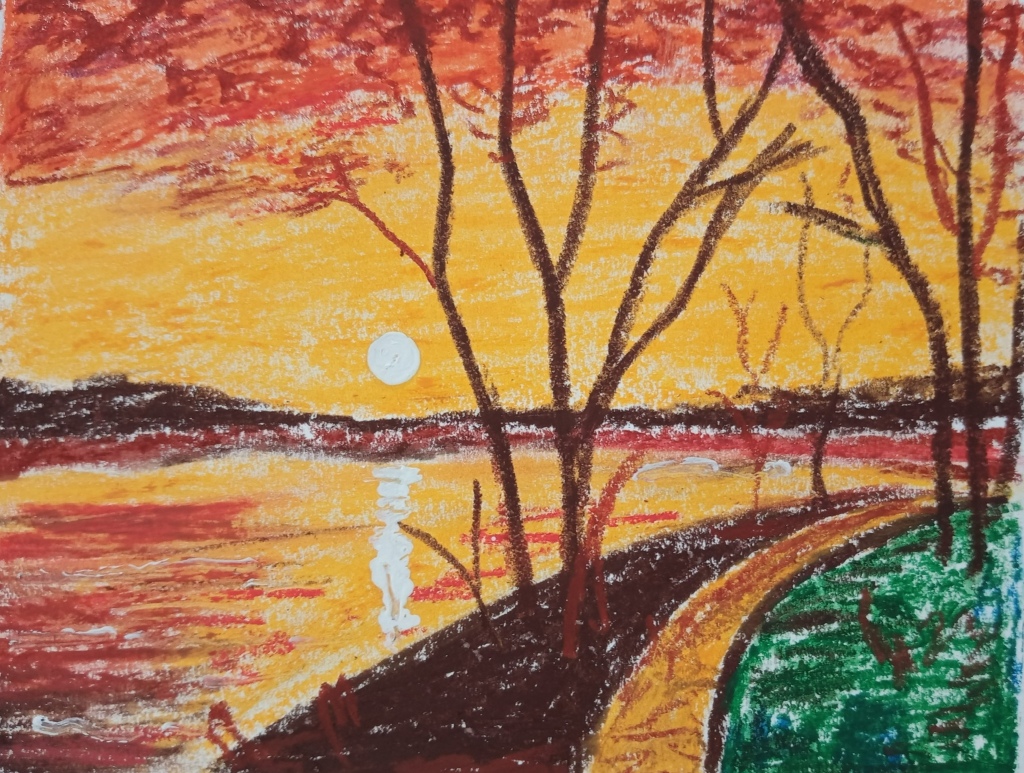
Editorial
April Showers… Click here to read.
Translations
Baraf Pora (Snowfall) by Rabindranath Tagore, gives a glimpse of his first experience of snowfall in Brighton and published in the Tagore family journal, Balak (Children), has been translated from Bengali by Somdatta Mandal. Click here to read.
Himalaya Jatra ( A trip to Himalayas) by Tagore, has been translated from his Jibon Smriti (1911, Reminiscenses) by Somdatta Mandal from Bengali. Click here to read.
Bhumika (Introduction) by Tagore has been translated from Bengali by Ratnottama Sengupta. Click here to read.
The Fire-grinding Quern by Manzur Bismil has been translated from Balochi by Fazal Baloch. Click here to read.
The Tobacco Lover by Ihlwha Choi has been translated from Korean by the poet himself. Click here to read.
Pochishe Boisakh (25th of Baisakh) by Tagore(1922), has been translated from Bengali by Mitali Chakravarty. Click here to read.
Pandies Corner
Songs of Freedom: Dear Me… is an autobiographical narrative by Ilma Khan, translated from Hindustani by Janees. These narrations highlight the ongoing struggle against debilitating rigid boundaries drawn by societal norms, with the support from organisations like Shaktishalini and pandies’. Click here to read.
Poetry
Click on the names to read the poems
Michael Burch, Kirpal Singh, Scott Thomas Outlar, Nusrat Jahan Esa, George Freek, Snigdha Agrawal, Phil Wood, Pramod Rastogi, Stuart McFarlane, Ahmad Al-Khatat, Shamik Banerjee, Ryan Quinn Flanagan, Lisa Sultani, Jenny Middleton, Kumar Bhatt, Rhys Hughes
Poets, Poetry & Rhys Hughes
In The Desk, Rhys Hughes writes of his writerly needs with a speck of humour. Click here to read.
Musings/Slices from Life
Ratnottama Sengupta relates songs of Tagore to the recent heatwave scorching Kolkata. Click here to read.
The Older I get, the More Youthful Feels Tagore
Asad Latif gives a paean in prose to the evergreen lyrics of Tagore. Click here to read.
Ravi Shankar takes us through a journey of cameras and photography, starting with black and white films. Click here to read.
Musings of a Copywriter
In Witches and Crafts: A Spook’s Tale, Devraj Singh Kalsi finds a ghostly witch in his library. Click here to read.
Notes from Japan
In Of Peace and Cheese, Suzanne Kamata gives us a tongue in cheek glimpse of photo-modelling mores. Click here to read.
Essays
Discovering Rabindranath and My Own Self
Professor Fakrul Alam muses on the impact of Tagore in his life. Click here to read.
Jared Carter explores the creative soul of poets through varied times and cultures. Click here to read.
Bengaliness and Recent Trends in Indian English Poetry: Some Random Thoughts
Somdatta Mandal browses over multiple Bengali poets who write in English. Click here to read.
Stories
Hope is the Waking Dream of a Man
Shevlin Sebastian gives a vignette of life of an artist in Mumbai. Click here to read.
Lakshmi Kannan explores patriarchal mindsets. Click here to read.
The Thirteen-Year Old Pyromaniac
Paul Mirabile gives a gripping tale about a young pyromaniac. Click here to read.
Conversation
Ratnottama Sengupta in conversation about Kitareba, a contemporary dance performance on immigrants, with Sudarshan Chakravorty, a choreographer, and founder of the Sapphire Dance Company. Click here to read.
Book Excerpts
An excerpt from Jessica Mudditt’s Once Around the Sun – From Cambodia to Tibet. Click here to read.
An excerpt from Bhaskar Parichha’s Biju Patnaik: The Rainmaker of Opposition Politics. Click here to read.
Book Reviews
Meenakshi Malhotra reviews Mahasweta Devi: Writer, Activist, Visionary, edited by Radha Chakravarty. Click here to read.
Basudhara Roy reviews Out of Sri Lanka: Tamil, Sinhala and English Poetry from Sri Lanka and its Diasporas, edited by Vidyan Ravinthiran, Seni Seneviratne, Shash Trevett. Click here to read.
Swagata Chatterjee reviews Sanjukta Dasgupta’s Ekalavya Speaks. Click here to read.
Bhaskar Parichha reviews Bhang Journeys: Stories, Histories, Trips and Travels by Akshaya Bahibala. Click here to read.
.
Click here to access the Borderless anthology, Monalisa No Longer Smiles
Click here to access Monalisa No Longer Smiles on Amazon International
